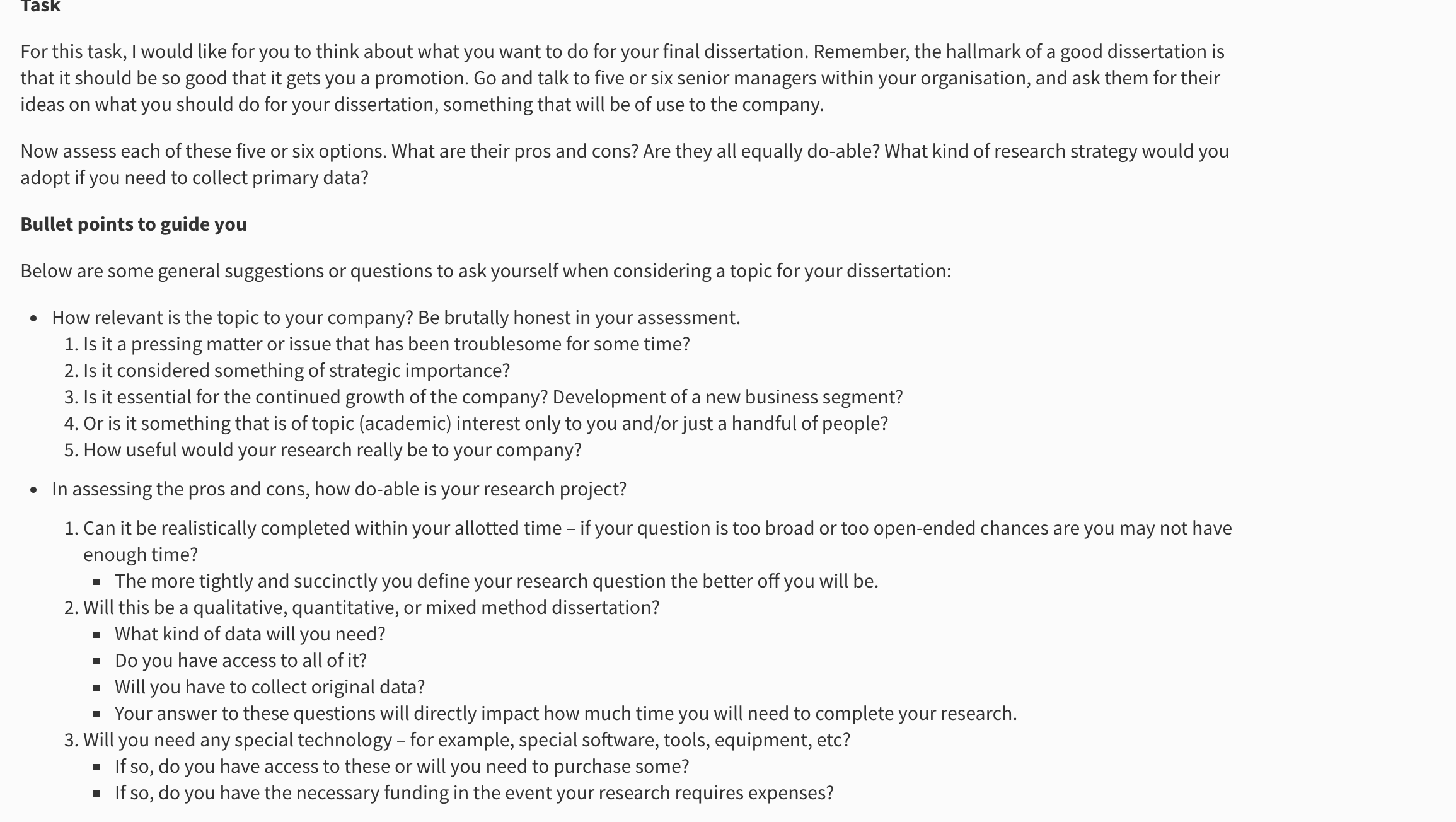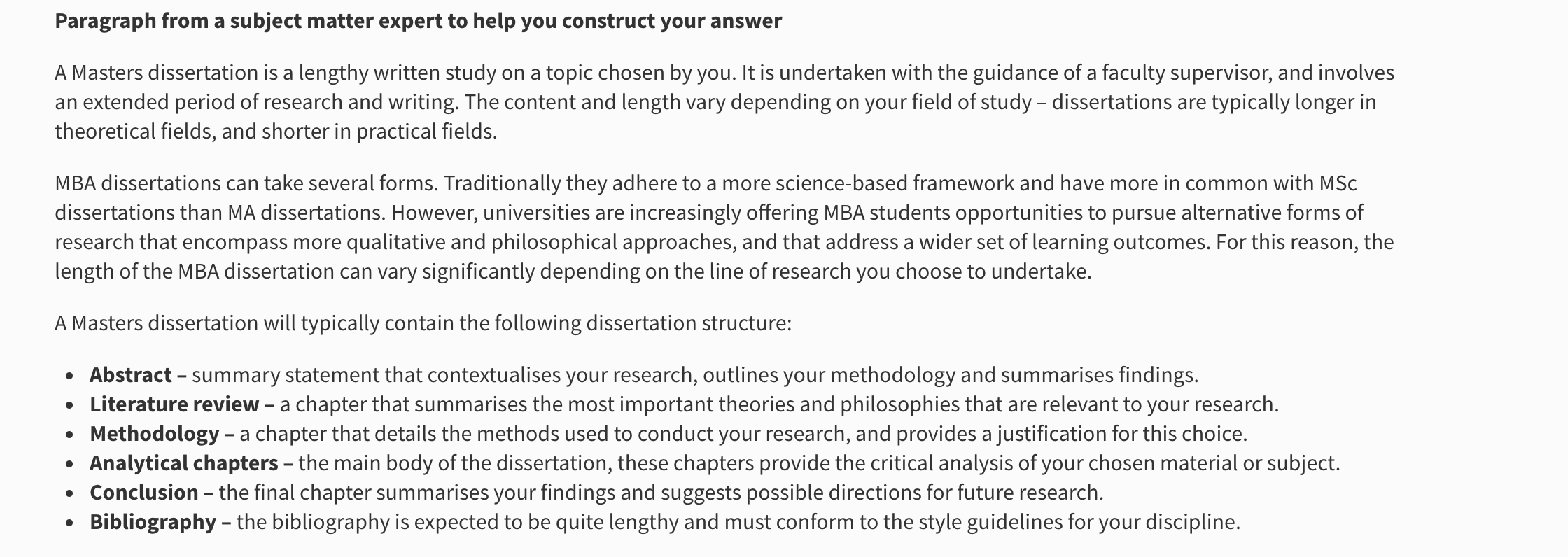Task For this task, I would like for you to think about what you want to do for your final dissertation. Remember, the hallmark of a good dissertation is that it should be so good that it gets you a promotion. Go and talk to five or six senior managers within your organisation, and ask them for their ideas on what you should do for your dissertation, something that will be of use to the company. Now assess each of these five or six options. What are their pros and cons? Are they all equally do-able? What kind of research strategy would you adopt if you need to collect primary data? Bullet points to guide you Below are some general suggestions or questions to ask yourself when considering a topic for your dissertation: - How relevant is the topic to your company? Be brutally honest in your assessment. 1. Is it a pressing matter or issue that has been troublesome for some time? 2. Is it considered something of strategic importance? 3. Is it essential for the continued growth of the company? Development of a new business segment? 4. Or is it something that is oftopic (academic) interest only to you and/orjust a handful of people? 5. How useful would your research really be to your company? . In assessing the pros and cons, how do-able is your research project? 1. Can it be realistically completed within your allotted time if your question is too broad or too open-ended chances are you may not have enough time? - The more tightly and succinctly you define your research question the better offyou will be. 2. Will this be a qualitative, quantitative, or mixed method dissertation? - What kind of data will you need? - Do you have access to all of it? - Will you have to collect original data? - Your answer to these questions will directly impact how much time you will need to complete your research. 3. Will you need any special technology for example, special software, tools, equipment, etc? I If so, do you have access to these or will you need to purchase some? - If so, do you have the necessary funding in the event your research requires expenses? Paragraph from a subject matter expert to help you construct your answer A Masters dissertation is a lengthy written study on a topic chosen by you. It is undertaken with the guidance of a faculty supervisor, and involves an extended period of research and writing. The content and length vary depending on your field of study dissertations are typically longer in theoretical fields, and shorter in practical fields. MBA dissertations can take several forms. Traditionally they adhere to a more sciencebased framework and have more in common with M$c dissertations than MA dissertations. However, universities are increasingly offering MBA students opportunities to pursue alternative forms of research that encompass more qualitative and philosophical approaches, and that address a wider set of learning outcomes. For this reason, the length of the MBA dissertation can vary significantly depending on the line of research you choose to undertake. A Masters dissertation will typically contain the following dissertation structure: . Abstract - summary statement that contextualises your research, outlines your methodology and summarises findings. . Literature review - a chapter that summarises the most important theories and philosophies that are relevant to your research. . Methodology - a chapter that details the methods used to conduct your research, and provides a justification for this choice. . Analytical chapters - the main body of the dissertation, these chapters provide the critical analysis of your chosen material or subject. . Conclusion - the final chapter summarises your findings and suggests possible directions for future research. . Bibliography - the bibliography is expected to be quite lengthy and must conform to the style guidelines for your discipline








